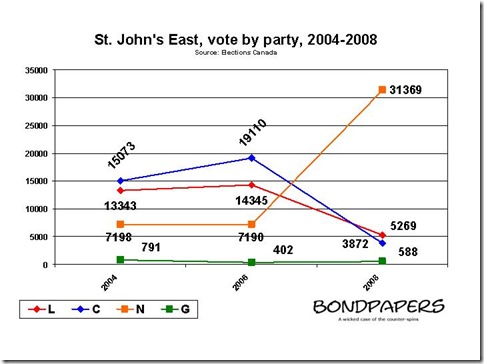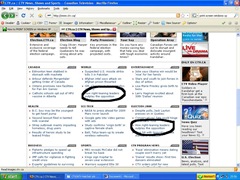Narrow partisan considerations reared their ugly head in a meeting of the legislature's management committee.
An independent study commissioned by the House of Assembly management commission recommends an increase in budgets for the Provincial Conservative, Liberal and New Democratic causes in the House of Assembly.
MR. SPEAKER: Okay. Provide base funding for the Government Members’ Caucus of $100,000 annually.
The Chair is ready for discussion.
Ms Burke.
MS BURKE: That is one recommendation that I support.
Joan Burke, education minister and government house leader may have enthusiastically voted money for her political friends but in the end, the Provincial Conservative members of the legislature's internal management commission support every single recommendation, except one.
That one allocated $162,000 to the Official Opposition office to ensure a well-funded opposition that would have appropriate resources to carry out its important legislative function in a modern democracy. The study reviewed legislature budgets across Canada and in several foreign parliaments.
The report included a set of general principles on democratic legislatures and caucus funding. They included, among others:
3. The legislature must be strong vis-à-vis the executive in order for democratic government to be effective.
...
5. In adversarial systems, the Opposition and other parties play important roles and need institutionalized protections.
...
One cannot imagine a more straightforward set of principles. In order to drive home their point on the importance of a legislature with a properly funded opposition, the authors included an observation on events in several provinces where opposition benches were depleted after an election:
The crucial thing is that there has to be informed opposition, and that takes resources. However, one other consideration is germane here. That is that in first-past-the-post (single member plurality) systems such as those that exist in Canada, there is a danger of opposition shut-outs or quasi shut-outs as the electoral system exaggerates the winner’s share of seats. This has been seen in general elections in the provinces of Newfoundland and Labrador, PEI, New Brunswick, Alberta and British Columbia. There needs to be a kind of “Opposition Bill of Rights” to deal with such anomalies, since Westminster systems
depend on adversarialism.
The Provincial Conservative members took a decidedly different view. Innovation minister Trevor Taylor put it this way:
MR. TAYLOR: Mr. Chairman, I don’t need to reiterate everything that Ms Burke just said, but I think if you just look at it from a perspective, a base allocation, one would think that a base allocation would be a base for all caucuses. Why the principles of Metrics EFG would differentiate is hard for me to follow, to be honest about it. [Emphasis added]
That last statement could not be more painfully obvious or true.
The extent to which the Provincial Conservative members also picked at petty issues is evident in the transcript of the session. Education minister Joan Burke seemed concerned either to micromanage issues - as with Memorial University - or to ensure that no one got a few dollars more in his or her budget than she had available in hers:
MS BURKE: I have a question on that, and I think it may be just a clarification.
It says that the assistant to the Opposition House Leader is $49,000 and the assistant to the Government House Leader is $43,000. So, is this simply a case where there is a step progression but it would be the same job?
Okay, I just wanted to clarify that because in the report it kind of stands out as to why and I thought that would have been the explanation.
MR. SPEAKER: Yes. My understanding is that the assistant to the Leader of the Opposition has gone through the step progression to reflect that salary, and the assistant to the Government House Leader will do the incremental steps to get up to that particular salary as well.
MS BURKE: In essence what we are saying is, instead of it being, say, $49,000 there, that would depend, I guess – that is only an indication of where an individual would be on a step. If that position changed tomorrow, that $49,000 could potentially be, I do not know, $38,000 or $39,000.
Outside the meeting the Provincial Conservatives defended their actions as being about responsible management of public spending.
-srbp-





